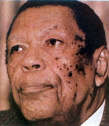Several of the Antigua & Barbuda Hotels are water or beach front, or with sea views. Antigua & Barbuda small hotels and places to stay in Antigua and resorts in Antigua & Barbuda to discover your Antigua & Barbuda Caribbean vacation or holiday paradise.
 It would be difficult to overestimate the impact on Antigua's history of the arrival, one fateful day in 1684, of Sir Christopher Codrington. An enterprising man, Codrington had come to Antigua to find out if the island would support the sort of large-scale sugar cultivation that already flourished elsewhere in the Caribbean. His initial efforts proved to be quite successful, and over the next fifty years sugar cultivation on Antigua exploded. By the middle of the 18th century the island was dotted with more than 150 cane-processing windmills--each the focal point of a sizeable plantation. Today almost 100 of these picturesque stone towers remain, although they now serve as houses, bars, restaurants and shops. At Betty's Hope, Codrington's original sugar estate, visitors can see a fully-restored sugar mill.
It would be difficult to overestimate the impact on Antigua's history of the arrival, one fateful day in 1684, of Sir Christopher Codrington. An enterprising man, Codrington had come to Antigua to find out if the island would support the sort of large-scale sugar cultivation that already flourished elsewhere in the Caribbean. His initial efforts proved to be quite successful, and over the next fifty years sugar cultivation on Antigua exploded. By the middle of the 18th century the island was dotted with more than 150 cane-processing windmills--each the focal point of a sizeable plantation. Today almost 100 of these picturesque stone towers remain, although they now serve as houses, bars, restaurants and shops. At Betty's Hope, Codrington's original sugar estate, visitors can see a fully-restored sugar mill.
Most Antiguans are of African lineage, descendants of slaves brought to the island centuries ago to labor in the sugarcane fields. However, Antigua's history of habitation extends as far back as two and a half millenia before Christ. The first settlements, dating from about 2400 B.C., were those of the Siboney (an Arawak word meaning "stone-people"), peripatetic Meso-Indians whose beautifully crafted shell and stone tools have been found at dozens of sites around the island. Long after the Siboney had moved on, Antigua was settled by the pastoral, agricultural Arawaks (35-1100 A.D.), who were then displaced by the Caribs--an aggressive people who ranged all over the Caribbean. The earliest European contact with the island was made by Christopher Columbus during his second Caribbean voyage (1493), who sighted the island in passing and named it after Santa Maria la Antigua, the miracle-working saint of Seville. European settlement, however, didn't occur for over a century, largely because of Antigua's dearth of fresh water and abundance of determined Carib resistance. Finally, in 1632, a group of Englishmen from St. Kitts established a successful settlement, and in 1684, with Codrington's arrival, the island entered the sugar era.
 Emancipation actually improved the island's economy, but the sugar industry of the British islands was already beginning to wane. Until the development of tourism in the past few decades, Antiguans struggled for prosperity. The rise of a strong labour movement in the 1940s, under the leadership of V.C. Bird, provided the impetus for independence. In 1967, with Barbuda and the tiny island of Redonda as dependencies, Antigua became an associated state of the Commonwealth, and in 1981 it achieved full independent status. V.C. Bird is now deceased; his son, Lester B. Bird, was elected to succeed him as prime minister
Emancipation actually improved the island's economy, but the sugar industry of the British islands was already beginning to wane. Until the development of tourism in the past few decades, Antiguans struggled for prosperity. The rise of a strong labour movement in the 1940s, under the leadership of V.C. Bird, provided the impetus for independence. In 1967, with Barbuda and the tiny island of Redonda as dependencies, Antigua became an associated state of the Commonwealth, and in 1981 it achieved full independent status. V.C. Bird is now deceased; his son, Lester B. Bird, was elected to succeed him as prime minister











